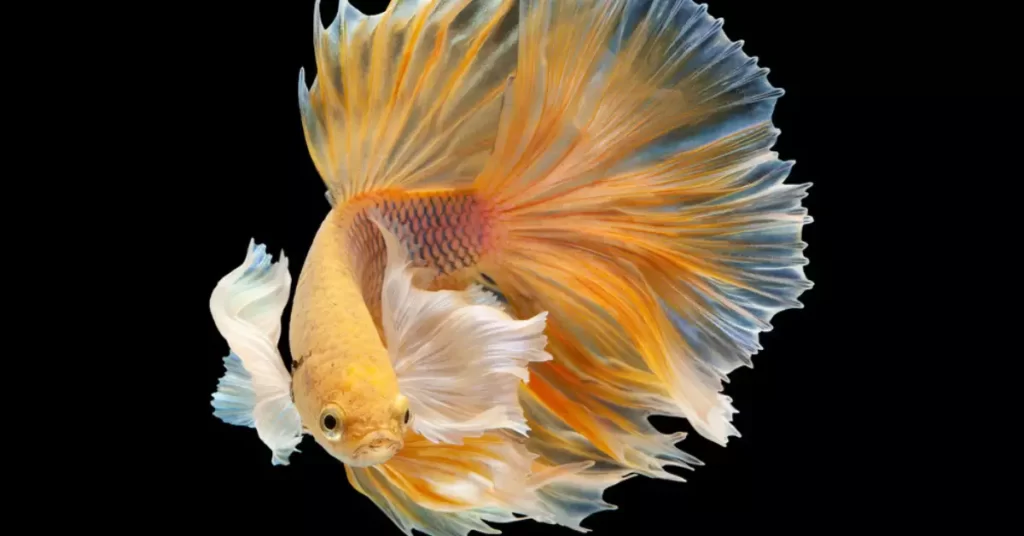Betta fish, also known as Siamese fighting fish, are popular pets because of their vibrant colors and fascinating personalities. Many betta fish owners may wonder if they can safely touch their fish.
In this article, we will explore this topic in-depth, examining the pros and cons of handling betta fish and providing helpful tips for those who want to interact more closely with their aquatic pets.
Understanding Betta Fish Behavior
Before handling your betta fish, it’s essential to understand their natural behaviors and instincts. This knowledge will help ensure a safe and stress-free experience for both you and your fish.
Social Behavior
Betta fish are solitary animals that can become aggressive towards other fish, especially those of their own species.
This territorial behavior is a survival instinct and helps prevent overcrowding in their natural habitat. However, betta fish can tolerate some human interaction if done appropriately.
Stress Factors
Various factors can cause stress in betta fish, including poor water quality, sudden changes in temperature, and handling.
Stress can weaken their immune system, making them more susceptible to diseases and other health issues.
Reasons You May Want to Touch Your Betta Fish
There are a few legitimate reasons you may need to handle your betta fish, such as health checks, tank maintenance, and relocation.
Health Checks
Regular health checks are crucial for ensuring the well-being of your betta fish. These checks can help you detect signs of illness early, enabling you to take appropriate action to keep your fish healthy.
Tank Maintenance
When cleaning your betta fish tank, you may need to remove the fish temporarily. During this process, it’s essential to handle your fish carefully to minimize stress and potential injury.
Relocation
If you need to move your betta fish to a different tank or location, handling may be necessary. In this case, it’s crucial to make the transition as smooth and stress-free as possible for your fish.
Risks Associated with Touching Betta Fish
Despite the potential reasons for handling your betta fish, there are also risks involved. These risks include stress, injury, and disease transmission.
Stress
Handling can cause stress in betta fish, which can lead to health issues. It’s essential to minimize stress by handling your fish as infrequently as possible and using proper techniques.
Injury
Betta fish have delicate fins that can be easily damaged by improper handling. Injuries can lead to infections and other complications, so it’s crucial to handle your fish gently and carefully.
Disease Transmission
Handling your betta fish can also expose them to bacteria and other pathogens present on your hands.
This can lead to diseases, making it essential to practice proper hygiene before and after touching your fish.

How to Safely Handle Your Betta Fish
If you must handle your betta fish, there are several precautions you can take to minimize stress and ensure a safe experience for both you and your fish.
Preparing the Environment
Before handling your betta fish, ensure that the water in the temporary container matches the water in the main tank.
This includes temperature, pH levels, and other water parameters. A consistent environment helps minimize stress during the transition.
Technique
When handling your betta fish, use a soft, clean fishnet to gently scoop them out of the tank. Avoid using your hands, as this can cause injury to their delicate fins.
Once your fish is in the net, transfer them to the temporary container with minimal disturbance.
Handwashing
Wash your hands thoroughly before and after handling your betta fish. This practice helps minimize the risk of disease transmission and keeps your fish healthy.
Alternatives to Touching Betta Fish
If you want to interact with your betta fish without touching them, there are several alternatives you can try.
Feeding Tweezers
Using feeding tweezers allows you to offer food to your betta fish without direct contact.
This method can also help build trust between you and your fish, as they associate your presence with a positive experience.
Target Training
Target training involves teaching your betta fish to follow a specific object, such as a chopstick, in exchange for food.
This interactive method can provide mental stimulation for your fish and allows you to engage with them without touching them.
Observation
Simply observing your betta fish can provide insight into their behavior and well-being. Regular observation can help you detect changes in their behavior, appearance, or health, enabling you to address potential issues early.
Frequently Asked Questions
How often should I clean my betta fish tank?
Regular tank maintenance is crucial for your betta fish’s health. Perform partial water changes (25-50%) weekly and a complete tank cleaning once a month.
Can betta fish recognize their owners?
Yes, betta fish can recognize their owners and may even respond to their presence. Consistent interaction can help build a bond between you and your betta fish.
What should I do if my betta fish gets injured during handling?
If your betta fish sustains an injury, isolate them in a quarantine tank and monitor their condition closely. Maintain optimal water quality and consider using aquarium salt or other treatments to aid in recovery.
Conclusion
While it’s possible to touch your betta fish, it’s generally not recommended due to the potential risks involved.
Instead, focus on providing a healthy environment, regular health checks, and engaging with your betta fish using alternative methods.
By understanding your betta fish’s behavior and respecting their boundaries, you can ensure a happy and healthy life for your aquatic companion.